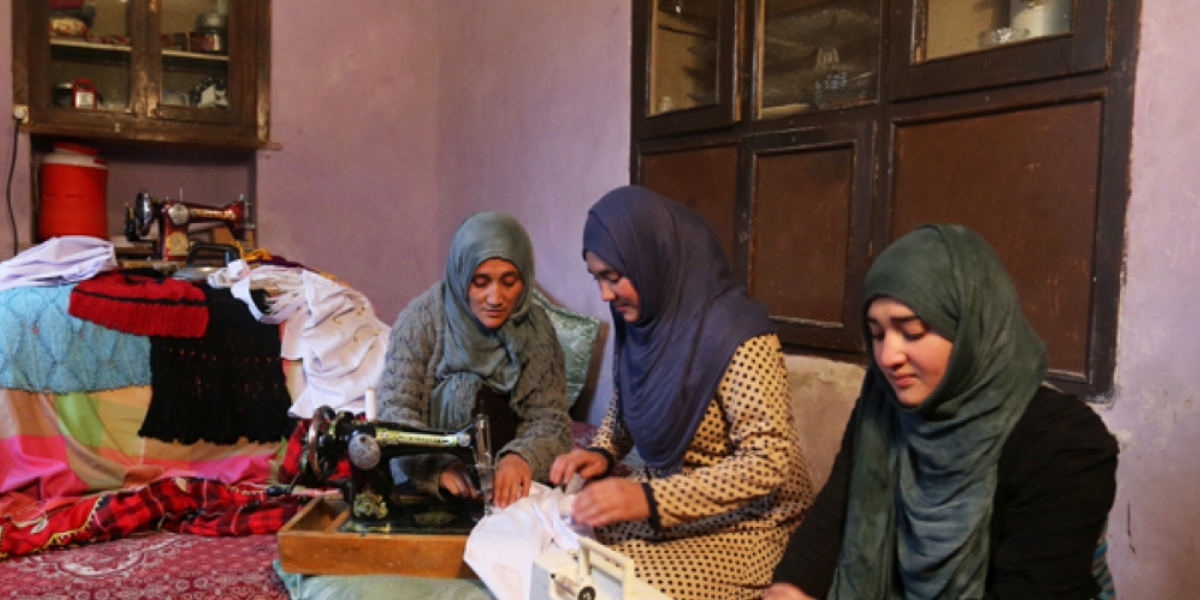Razia, a 23-year-old woman, owns a tailor business in Kandahar’s Daman district, in war-torn Afghanistan, where norms discourage women from working outside the house.
“I’m trying to build it (the tailor business),” Razia said, adding that 50 women work in her workshop and are paid weekly.
Razia stated that her staff are pleased with the cash they receive from selling her items in Kandahar city, the capital of Kandahar’s southern region. Women and girls at the workshop are embroidering, stitching traditional clothing, and producing burkas, an envelope-like veil that covers a lady from head to toe.
“Our items include needlework and traditional Afghan clothing, which are in high demand,” Razia told.
Razia stated that in order to improve her products, she had been to Kabul twice to present them at a handicrafts fair in order to acquire more consumers.
Despite the fact that women are involved in the fields of health, education, and business, schoolgirls in grades 7 through 12 are unable to attend classes.
The Ministry of Higher Education recently decided to split educational days for male and female university students.
According to the judgement, female students may attend classes on Saturday, Monday, and Wednesday, while male students could attend lessons on Sunday, Tuesday, and Thursday.
Razia, who is ambitious, has always sought to exhibit her items at craft fairs and has also petitioned local officials to revive Juma Bazaar (Friday Bazaar), a local market where businesspeople used to sell their wares. Khudija, Razia’s colleague, thought that working women aid to stabilise the economy.
“My crew consists of 12 ladies that work here and sell our items,” Khudija explained. “On the one hand, it helps us earn a living and, on the other side, it stabilises the home economy.”
Another lady, Habiba Amini, has launched a tailor business in northern Mazar-i-Sharif, providing employment for 40 women in the city.
[embedpost slug=”/philippine-president-refuses-bidens-invitation/”]

















